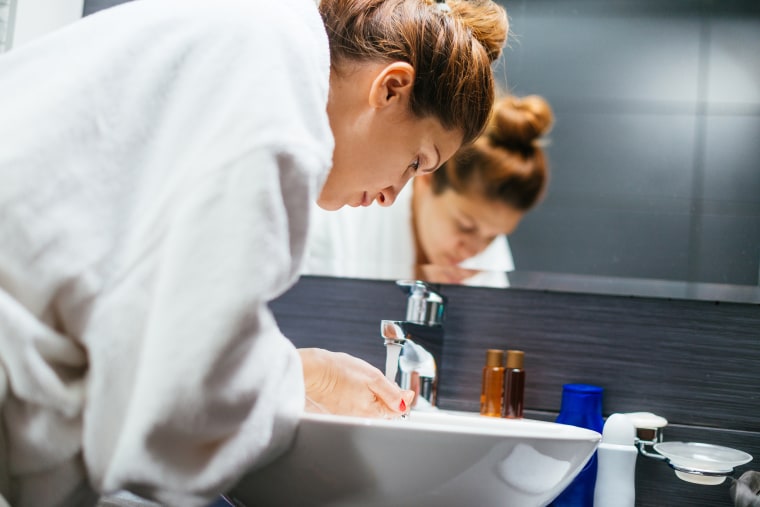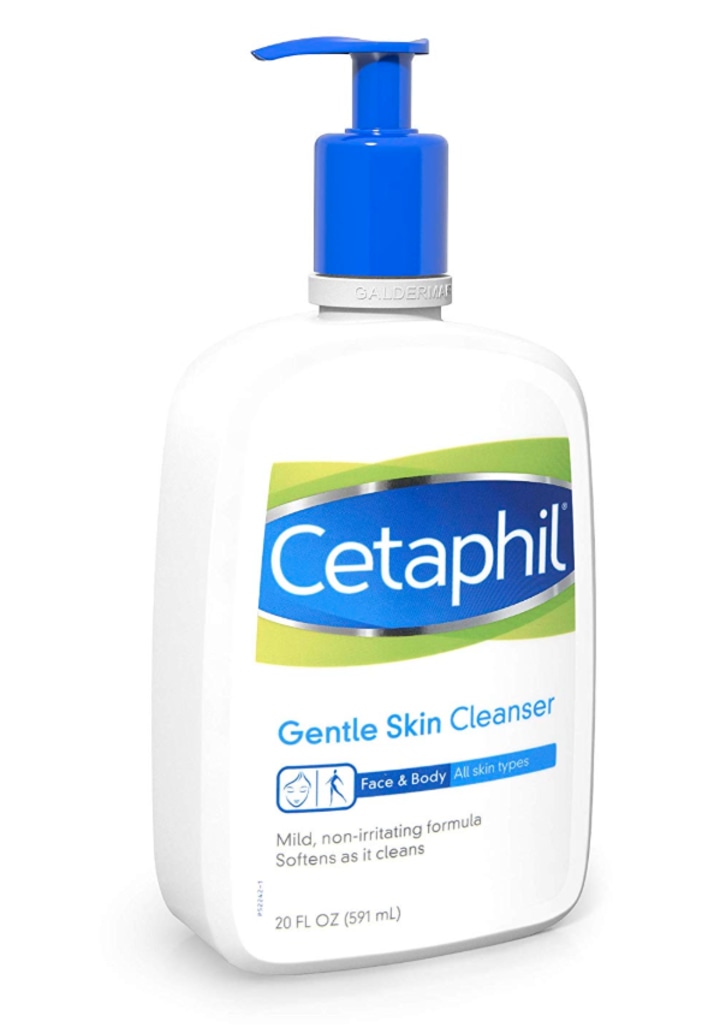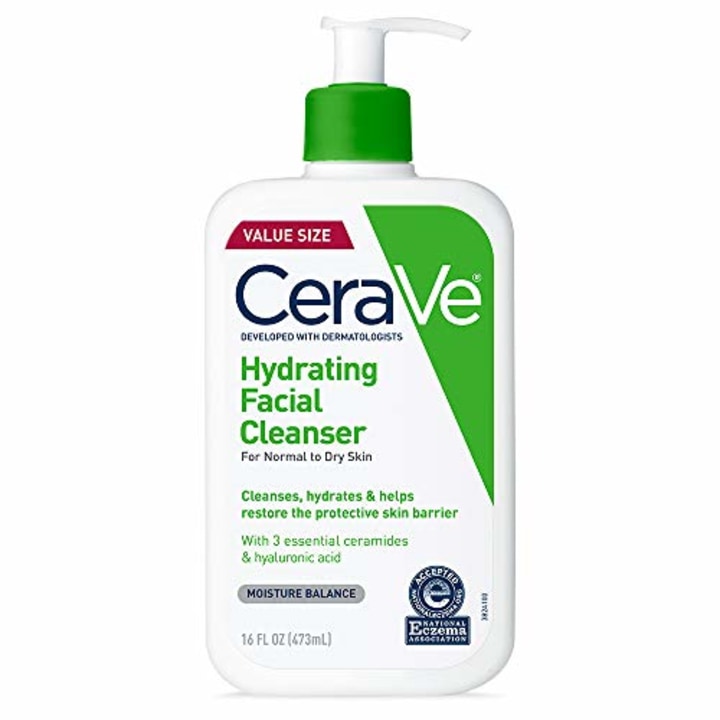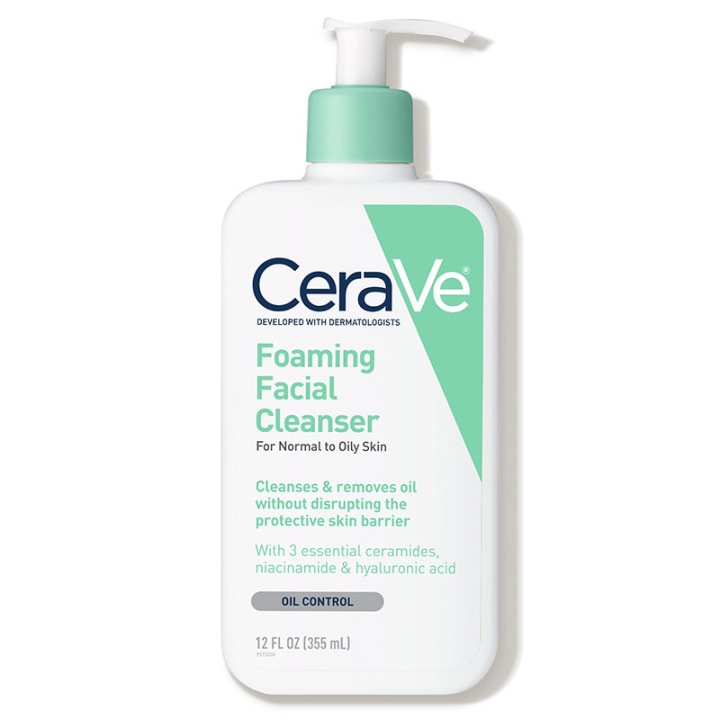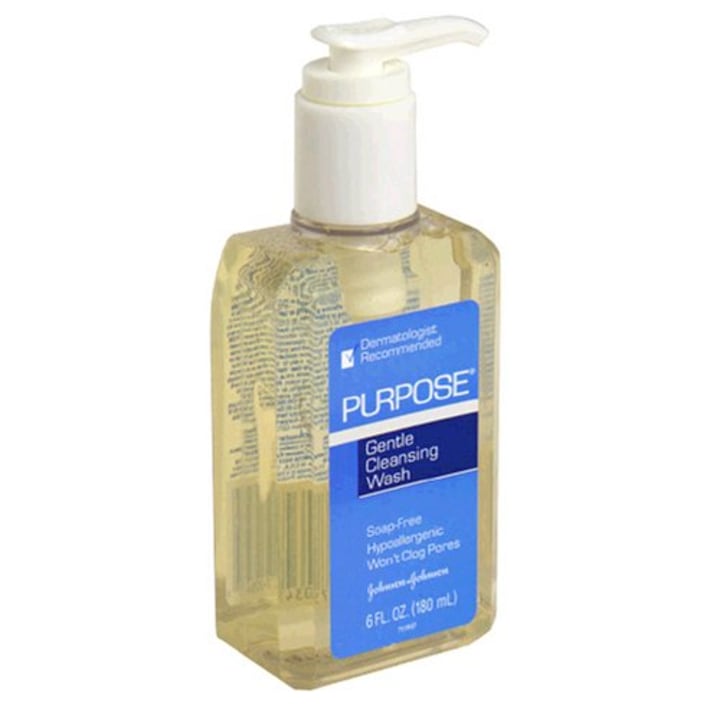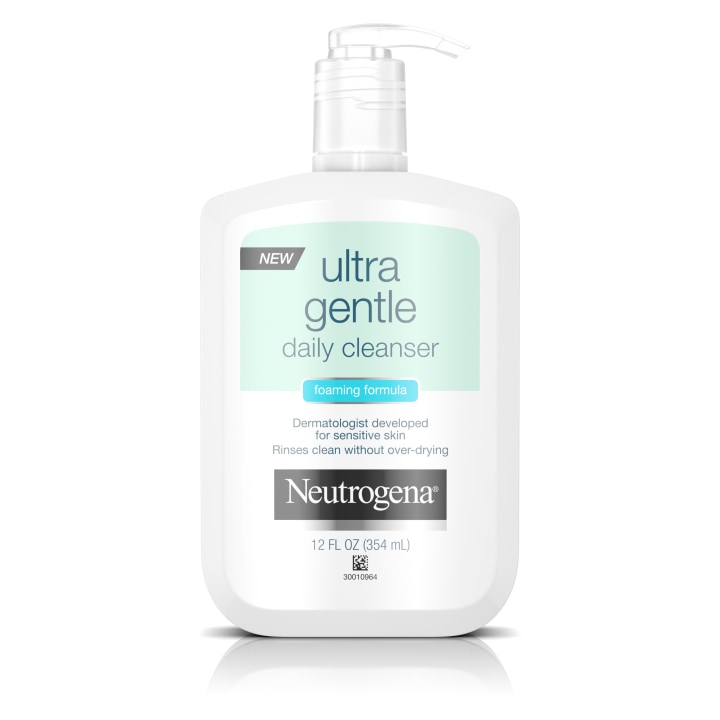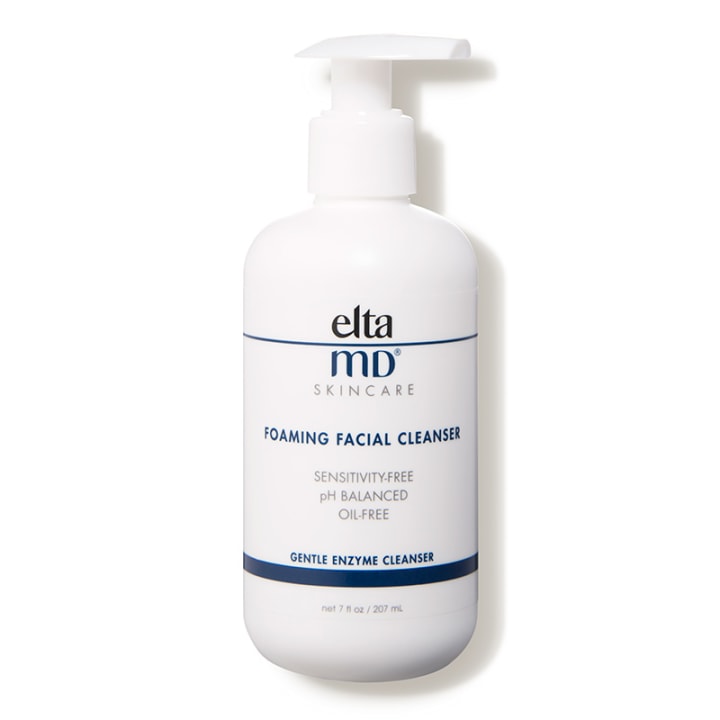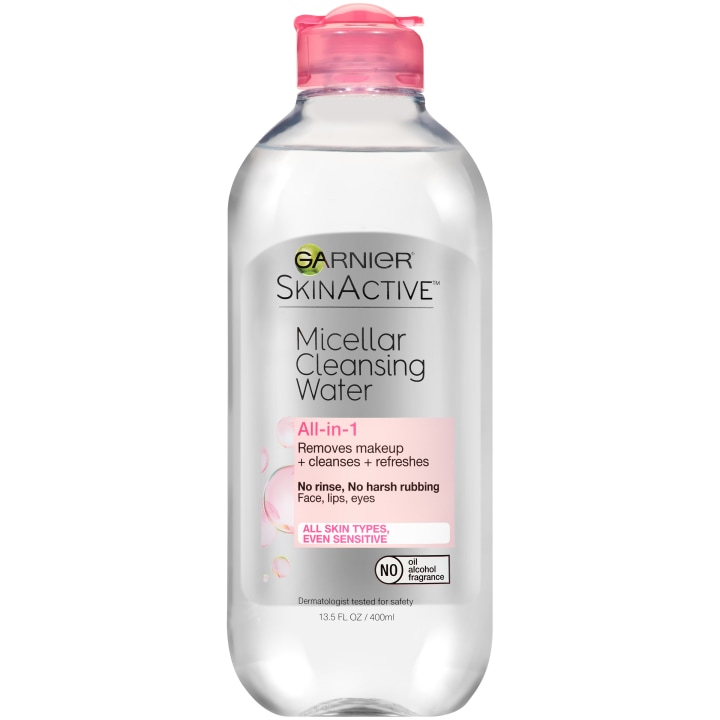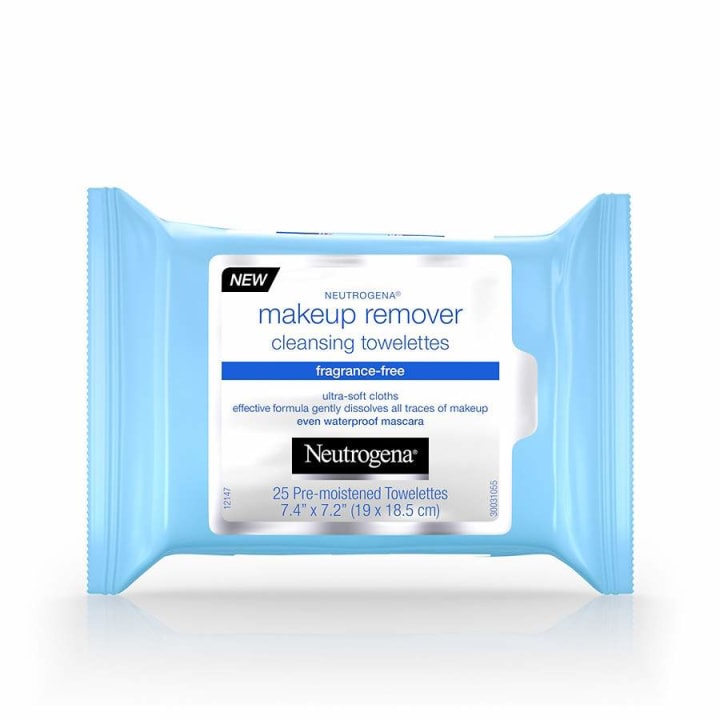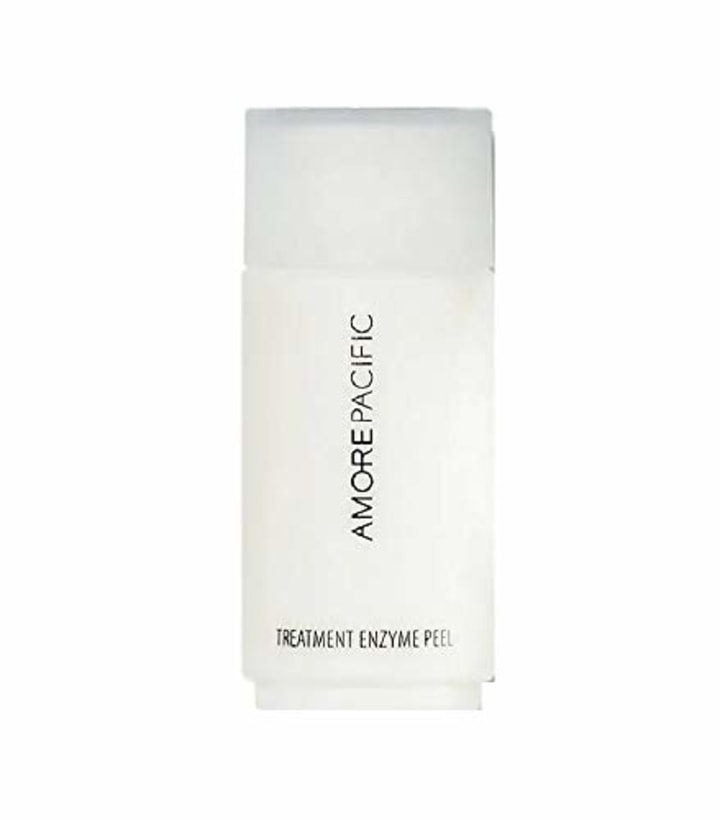I don’t remember the exact moment it happened, but at some point in my adult life the once simple step in my skincare routine of washing my face became not so simple. For years, I would just throw water on it, dab it off with a hand towel and think nothing of it.
Now, in my mid-30s, washing my face is something akin to a spiritual practice. I have extremely serious opinions about how my precious countenance needs to be cleansed (micellar water, toner and foaming cleanser in the morning, then makeup remover, toner and a thicker cream cleanser with cold tap water at night). On the occasion that my face washing regimen is thwarted, I become deeply upset. For instance, this past weekend I realized I forgot my bursting satchel of skincare products at home while on an overnight trip and realized I would have to wash to either wash my face with just plain water (the horror!) or what’s worse, use the hotel bar hand soap (why not just scour my delicate pores with a pumice stone while you’re at it!).
I may have become high-maintenance about my skincare regimen, but that doesn’t mean I’m confident in it. No, I often spend my anxious moments scrolling through Instagram, devouring brand-sponsored content about allegedly better ways to do just about everything beauty-related, whether it’s grooming my brows, defining my cheekbones or, yes, washing my face. At this point, I’m drowning in mixed messages. One beauty blogger says to only wash your face with cold water; another says to never even touch water from the tap but only use micellar water (both it turns out, are wrong!). I must know: Am I washing my face right? I turned to dermatologists with a slew of questions. Here’s what they told me:
In this article
- How and what should I use to wash my face?
- What temperature water is best?
- How should I use my facial cleanser?
- Is micellar water better than tap water?
- Do I need toner and makeup remover?
- Should I exfoliate with a face scrub or a Clarisonic?
- Should I alter my current routine?
How many times a day should I wash my face?
“Realistically, you only need to wash your face once a day — twice at the most," says Dr. Todd Minars, MD, a dermatologist and Assistant Clinical Professor of Dermatology, University of Miami School of Medicine. “Most of us when we sleep have a clean face from removing the day's grime or makeup off, so I tend to think that in the mornings you don't need a thorough face washing outside of your normal showering routine. If you experience specific issues that require attention in the morning it's fine to do it then, but I see more benefits at the end of the day when you return from work or go to bed.”
Generally, a third washing is okay, but only if you’ve “just come from a sporting event where you sweat a lot, or if you're wearing a lot of makeup [ahead of going to the gym] and would prefer not to deal with that while working out,” says Dr. Peterson Pierre, MD, a dermatologist in Thousand Oaks, California.
Apparently, overwashing your face is a thing — but your skin will likely let you know if you’re doing this via breakouts, dryness or irritation.
“When washing the face too much, you lose natural oils and fats in the skin, which technically will pull the skin cells apart allowing room for debris and bacteria to enter the skin, causing infections and inflammation,” says Dr. Roberta Del Campo, MD, a Florida-based dermatologist.
Best facial cleansers to use in 2020
The most important quality in a cleanser (if not all skincare) comes down to one word: “gentle”.
“A lot of times patients come in saying they have sensitive skin, but it's really because of all the things they're doing to it,” says Dr. Kathleen Cook Suozzi, MD, a dermatologist, and director of aesthetic dermatology at Yale Medicine. “You want to strip everything down and stick to a really gentle skin care regimen. Then you can add things back, but add them in slowly. Add one thing at a time and use the product for at least two weeks before you add anything else to avoid sensitizing the skin.”
She adds that she recommends “hydrating gentle moisturizers to patients over 40; whereas patients in their 20s may require a foaming cleanser if acne prone.”
A lot of this is trial and error, and the best way to know if your face cleanser is working for you is if you don’t have any kind of irritation, redness or sense of over-drying.
Dermatologists make a lot of money (an average of $334k a year in the U.S!) so I expected them to hawk some pretty high-end face cleansers; to my surprised delight, none of them did. These are the cleansers that were most recommended to me by the doctors I consulted:
1. Cetaphil Gentle Skin Cleanser for All Skin Types
2. Cerave Hydrating Facial Cleanser
3. Cerave Foaming Facial Cleanser
4. J&J Purpose Gentle Cleaning Wash
5. Neutrogena Ultra Gentle Daily Cleanser
6. Elta MD Foaming Cleanser
What temperature water is best?
“Warm water is always best as hot can strip the skin of its natural oils and cold does not allow the pores to open to remove dirt,” says Dr. Del Campo.
Dr. Manish Shah, MD, a plastic surgeon based in Colorado, champions “lukewarm” water as does Dr. Viseslav Tonkovic-Capin, MD, a dermatologist based in Kansas City.
How should I use facial cleanser?
You know how you’re supposed to use just one scoop of detergent per laundry load, even if your clothes are super dirty? The same logic applies to cleansing your face. Don’t overdo it. The point of washing your face is to unclog your pores and “clean the canvas before you do other things,” says Dr. Pierre. That’s it!
On clean hands, apply “on the palm and work it into the lather with a little warm water,” says Dr. Tonkovic-Capin.
Rub in a circular motion “from the forehead, around eyes, down the cheek and finishing at the chin,” says Pierre, adding that he recommends going from the top of the face to the bottom simply because “it's easy to remember and a logical flow.”
Should I use micellar water instead of tap water?
Micellar water is all the rage these days, and most dermatologists think there’s a place for it — but more in a complementary sense than as a replacement for real water and cleanser. Dr. Sandra Lee, MD (aka, “Dr. Pimple Popper” from the TLC show of the same name), tells NBC News BETTER that she uses micellar water in the morning “just for a quick cleanse,” instead of scrubbing down with a thorough face wash (she saves this for the evening). “I find micellar water to be less harsh and less drying than regular water.”
Still, micellar water shouldn’t be the only water you use on your face. “It’s a good product with a nice, stable pH, but it’s heavily marketed like it’s magic,” says Pierre. “It’s not. You should still be washing your face with water and cleanser.”
Garnier SkinActive Micellar Cleansing Water
What about toner and makeup remover?
Where micellar water can come in handy is in place of toner. If you wear a lot of makeup, “a second pass with a micellar water” is recommended, Del Campo says, adding that she actually prefers micellar water to toner. “I am a huge fan of micellar water as it is a technology that helps to act almost as a magnet to attract makeup and debris without any irritation, so it is fantastic even on the most sensitive skin types. I shy away from toners and again prefer micellar water in place of a toner. [In regards to] makeup remover, I also prefer gentle and simple such as mineral oil to remove eye makeup. This should be done before washing the face to remove any remaining oil on the skin.”
So, in the case of micellar water, toner and makeup remover: all are fine, but none of them should replace washing your face once a day the regular way.
Can I just use face wipes instead?
Another trendy product on the market these days are face wipes, which as Dr. Minars says “are great in a pinch,” but shouldn’t be regularly used in lieu of washing your face with cleanser and water.
“I do not recommend them often due to excess trash for the environment; however, [face wipes are] convenient for many,” says Del Campo. “I recommend specifically the Neutrogena wipes, which I carry in my office, for someone who has sensitive skin and wants to remove their makeup prior to us pre-treating the area for procedures. Further, this can be convenient post-workout or after times with significant sweating for a quick cleansing of the face.”
Neutrogena Makeup Remover Cleansing Towelettes
What about exfoliating with a face scrub or the Clarisonic?
I see a lot of face washes that also promise to exfoliate. The problem with these is that they tend to keep that promise of exfoliation, which doesn't make them an ideal product for daily use.
“It's a good idea to exfoliate two to three times a week at most,” says Dr. Salma Pothiawala, MD, a dermatologist at Bethany Medical Clinic of New York, noting that exfoliating too much can dry out or irritate your skin. “For a lot of people, the Clarisonic is too harsh, but if you can tolerate it, it's an option. I personally like AmorePacific Treatment Enzyme Peel Cleansing Powder.”
AmorePacific Treatment Enzyme Peel Cleansing Powder
My current face washing regimen doesn’t line up with your advice; should I alter it?
If you’re washing your face in a way that doesn’t match up to these experts’ advice, but you feel good and aren’t experiencing any skin problems (and wearing sunscreen, which is non-negotiable to dermatologists), you’re doing just fine. Don’t feel pressured to change anything.
“Maybe you want there to be ten steps in your face-cleansing routine, which is fine if you have the time; or maybe you just want to wash your face in the shower,” says Dr. Lee. “Listen to your skin and how you feel — that’s what matters.”
Still, I can’t help but feel, as one of those multi-step-face-washing-routine people, that I have been washing my face wrong in recent years. Why? Because I’ve been fretting over (and spending on) it for absolutely no reason. What a waste of time and money! Finally, I can turn my mind and finances to more important matters, like moisturizing.
MORE TIPS FROM DERMATOLOGISTS
- How to reduce dark under-eye circles
- How to care for dry, cracked heels
- Best dandruff shampoos
- How to heal dry, chapped lips
- The best sunscreens for kids
Want more tips like these? NBC News BETTER is obsessed with finding easier, healthier and smarter ways to live. Sign up for our newsletter and follow us on Facebook, Twitter and Instagram.
